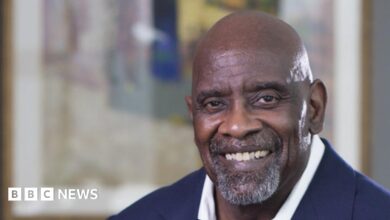What Dale Carnegie’s “How to Win Friends and Influence People” Can Teach the Modern Worker

While Carnegie writes about great men, his book is largely intended for
their employees. And although Carnegie’s advice was applicable to the
fearful workers of the Great Depression, the book does not read as if it
was written during a difficult or dire moment. It is a happy book. “Dale
Carnegie sells people what most of them desperately need,” the Saturday
Evening Post declared in a 1937 profile. “He sells them hope.” Much of
that can be attributed to Carnegie’s zippy prose. (“Skeptical? Well, I
like skeptical people.”) He offers no prognosis of the economy, no dour,
grandfatherly reminders about it being “hard out there.” He seems to
have no awareness of how hard it really was.
Carnegie was not the first person to evangelize about the power of
optimism. In the mid-eighteen-hundreds, a group of psychologists,
philosophers, and religious leaders formed what they called the school
of New Thought. They believed in the power of “mind-cures,” in the
efficacy of determination and grit. The psychologist William James, who
popularized the ideas of the New Thought movement, wrote of the
“all-saving power of healthy-minded attitudes.” He argued that if you
mustered your mental powers and stayed focussed, you could achieve
anything—wealth, social success, popularity. Positivity could even heal
a cold.
Carnegie often cites James in his books and lessons. “You don’t feel
like smiling?” he writes. “Then what? Two things. First, force yourself
to smile. If you are alone, force yourself to whistle or hum a tune or
sing. Act as if you were already happy, and that will tend to make you
happy.” He is citing one of James’s theories that our facial expressions
determine our mood as well as indicate it. Carnegie believed that our
actions dictate our thoughts, that we can train ourselves to be happy,
smart, and productive by behaving as if we are. If managers treated
their employees as if they were competent, they would become competent. If employees treated their managers as if they were wise and
compassionate, they would stop behaving like tyrants. All anyone wants,
Carnegie writes, is to feel appreciated. If you’re generous with your
perceptions of others, you can have all the friends and influence in the
world.
The cult of positive thinking has outlived Carnegie. The most prominent
example is probably “The Secret,” Rhonda Byrne’s self-help philosophy,
which claims that one can will an outcome into existence simply by
wanting it badly enough. “The Benefits of Optimism Are Real,” read a
recent headline for an Atlantic article that summarized the latest
psychological research on positive thinking. Ruminating and venting, the
article finds, have no tangible benefits, but cheerful resilience pays
dividends.
There is, however, another school of behavioral psychology, which
believes too much optimism makes you soft. It can zap your motivation—if
you’re certain that life will turn out as you hope, then you don’t have
the same hunger to try. Gabriele Oettingen, a psychologist at New York
University, studied a group of women enrolled in a weight-reduction
program and found that it was the pessimists who lost the most weight.
“Dreaming about the future calms you down . . . but it also can drain you of
the energy you need to take action in pursuit of your goals,” Oettingen
concluded.
Many have questioned Carnegie’s theory about the necessity of kindness
in the workplace. Today’s business advice catering to women, for
instance, is essentially reverse-Carnegie. “Be a good listener,” he
advises. “Encourage others to talk about themselves.” But studies today
show that men interrupt their female colleagues with far greater
frequency than their female colleagues interrupt them, and Sheryl
Sandberg and other ambassadors of female ambition urge women who want to
climb the corporate ladder to speak up. Likewise, Carnegie encouraged his readers to be perpetually deferential: “The unvarnished truth is
that almost all the people you meet feel themselves superior to you in
some way, and a sure way to their hearts is to let them realize in some
subtle way that you recognize their importance.” Yet Sandberg, among
others, advises women to develop their confidence and guard themselves
from men who take credit for their ideas.
There are other ways in which Carnegie’s advice seems outdated. By the
year 2020, forty per cent of American workers will be freelancers,
according to a study conducted by the software company Intuit. That
means they’ll make their income much as Carnegie himself did, cobbling
together gigs from different clients and projects. Corporate loyalty is
more fleeting today than it was in Carnegie’s day. There’s been a shift
to individual “brands,” with employees, at all ranks, trying to create a
distinct identity online. In this new era of heightened individualism,
corporations have had to offer new perks and toys—gourmet food,
expensive coffee—to instill company camaraderie.
But most companies don’t make such efforts, and most businesses aren’t
trying to retain their workforce. “Fifty years ago, when you went to
business school, you were taught that you want a loyal, dedicated,
skilled workforce,” Nelson Lichtenstein, director of the Center for the
Study of Work, Labor, and Democracy at U.C. Santa Barbara,
told the Los Angeles Times. “Today, if you go to business school, they tell
you [you] don’t want a permanent workforce. That’s considered new
standard operating procedure.”
Carnegie treated the employee-employer relationship as a sacred,
symbiotic bond. In today’s economy, work is structured more like a
string of one-night stands.
On the other hand, Carnegie’s ideas about the importance of emotional
intelligence and positivity are, perhaps, more apt than ever for the
uncertainties of the modern freelance market. Jobs are changing; careers
that don’t exist today will be in demand a decade from now. The modern
worker of the post-Fordist era has to be easy to work with and open to
change. Some years ago, I wrote an article about ex-convicts trying to
start their own businesses and turn their lives around. There were seven
subjects in total, and each had read “How to Win Friends and Influence
People” upon getting out of prison. One of the men, who had served
twenty years for a jewelry heist and read a lot of self-help, told me
that Carnegie’s book was the only thing he’d found that made it seem
possible to start over.
In the class at the Dale Carnegie Institute, we memorized each other’s
names and practiced enunciating our own. We learned an elaborate “visual
mnemonic” to help us memorize Carnegie’s principles for success. I
forgot it within seconds. Our instructor peppered her lecture with
moralistic maxims like, “You have two ears and one mouth for a reason.”
For the last exercise of the night, we wrote down our goals and shared
them with a partner. The realtor/musician wanted to record more songs. I
wanted to finish my book and do more overseas reporting. Then we had to
make a list of everything we were going to change about ourselves to
accomplish those goals. That was the real goal. We could all be more
industrious, more tenacious, more direct. All we had to do was try.
This piece was drawn from “Asking for a Friend: Three Centuries of
Advice on Life, Love, Money and Other Burning Questions from a Nation
Obsessed,” by Jessica Weisberg, which is out this month from Nation
Books.
Source link




